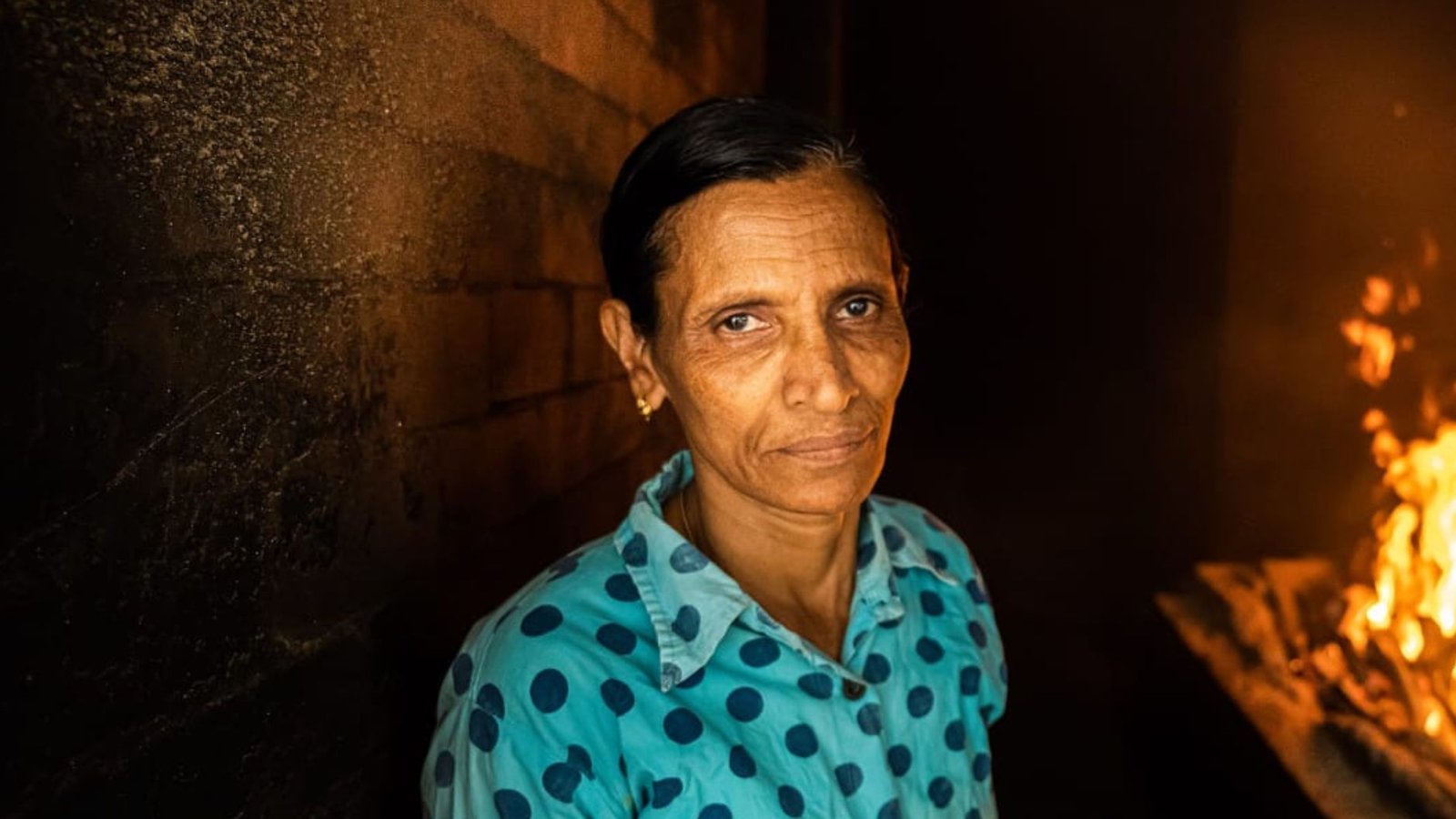At the age of 22, she was abandoned by her husband, leaving her with their two daughters. Since then, Selina Michael, 61, of Kakkanad in Kerala has been fighting for survival, and for the last 18 years, she has been working as a crematorium keeper.
Her determination and strong will to fight the challenges in life have defied all odds, proving that a woman can easily handle the role of a crematorium keeper, which has been traditionally considered to be a job only fit for a man.
Selina collects the firewood and prepares the pyre for cremation whenever a body is brought to Thirkkakara public crematorium for the last rites.
“After my husband left, I started working as construction labour to raise my children. But the heavy labour at the construction site took a toll on my health. As I was struggling, my neighbour asked me whether I was willing to help him at the crematorium where he had taken the tender to cremate the bodies. Though I was a little hesitant considering the social taboo attached to the job, I decided to take it up because the pay was decent and realised that my job had a purpose,” Selina told “Open Digest.”
During the initial days, people used to scorn Selina for working at the crematorium handling the dead bodies. But soon, people realised how determined she was at her job to bring up her daughters. “People used to ask me whether I was not afraid to work at the crematorium. But I never felt scared. Family and friends of the dead who come with the bodies respected me for the work I was doing at the crematorium. I realised that I am doing a big service and an important job which helped me to build a life for me and my children,” Selina said. After every body is burnt to ashes, Selina collects the ashes to hand them over to the family members.
After working at the crematorium for years, Selina has now taken the tender from the municipality to operate the crematorium. “I am happy with my work. This work has taught me the value of life and death and I’ve found pride in doing it right,” she said.
Her daughters, both of whom are now happily settled, credit their mother’s strength and determination for giving them a stable life.
Despite her years of hard work, Selina’s humility shines through. “I’ve done nothing extraordinary,” she says, “just what was necessary to survive and bring up my children.”
Today, Selina is a symbol of resilience, an example of how strength, dignity, and determination can transform lives, even in the face of overwhelming odds.



